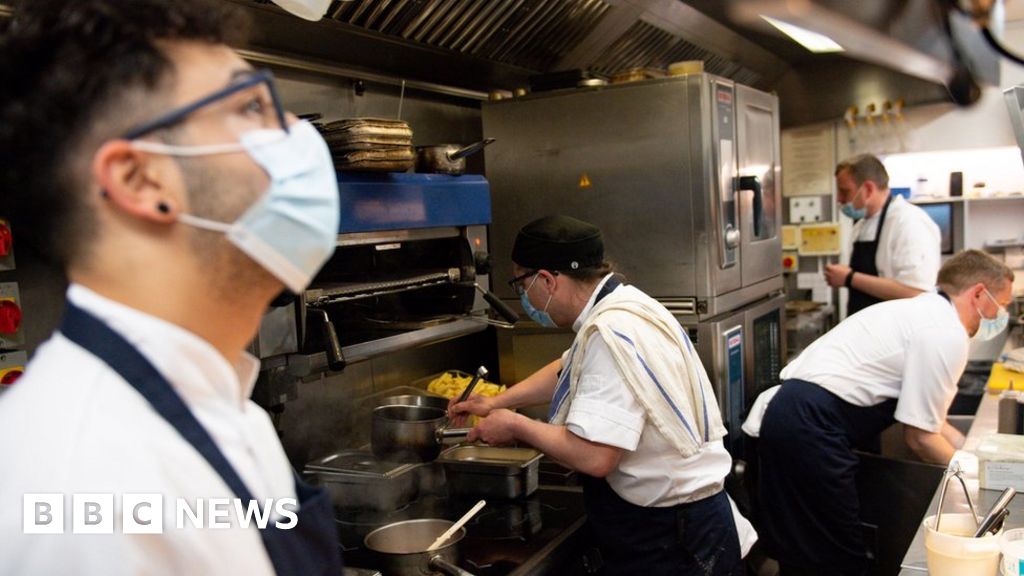Jamie Orlando Smith is a copyrighted image. On Sunday, Becky Salisbury and her husband David were driving when they received word that one of their pub’s employees, the Alford Arms in Berkhamsted, had tested positive for Covid. So, after a whirlwind year of restructuring its operations and implementing every sanitary step they could think of, the pub has reopened for ten days. “It’s aggravating,” Becky says. “Unfortunately, having made some money recently with excellent weather and a good garden, it’s all going to waste.” Becky and David are far from alone in their predicament. Operating day-to-day in pubs and restaurants across the country is a minefield. The NHS Track and Trace notifications come thick and fast, urging workers to segregate after just one occurrence on site. Venues cannot open without them. It isn’t sustainable, according to the industry, especially since the number of instances continues to climb at such a quick pace. Self-isolation, according to the administration, is still an important aspect of the campaign to stop the virus from spreading. Due to a staffing shortage, the restaurant has ceased serving lunch. Where have all the workers from the United Kingdom gone? As the scheme comes to an end, another million people will be placed on furlough. Ian Payne, chairman of the Stonegate pub network, claimed on social media that the firm has laid off roughly 1,000 staff after being notified by NHS Track and Trace, and 15 locations have been closed because the management team was self-isolating. Six members of the Wetherspoon pub chain’s staff had tested positive, requiring 69 additional employees to self-isolate. Even after reallocating personnel between venues, Nick Collins, CEO of the Loungers chain, which operates 173 cafe-bars, has had to close several locations. “It’s pretty difficult,” he admitted, but he now thinks that it “may get worse” as the virus’s prevalence grows. image copyrightLoungers As a result, UKHospitality, a lobbying group for pubs and restaurants, is urging the government to reconsider its isolation policies. “We’ve been warning the government about the acute personnel shortages at venues for a few weeks,” UKHospitality chief executive Kate Nicholls said. She claimed that even if they hadn’t shared shifts with coworkers who tested positive, some team members were told to segregate. image copyrightPA Media UKHospitality would like to see a testing method that monitors if employees are still virus-free while still allowing them to work. “If the system remains unchanged, there is a possibility of mass isolations, which would severely harm commerce and put many businesses at risk of failing,” Ms Nicholls said. “Rather than separating fit and healthy people, a strong focus on testing when cases are detected would assist to avoid mass isolations,” she said. The government is conducting a trial to investigate if allowing those who have been exposed to the virus to take daily tests rather than being isolated is beneficial in preventing the infection’s spread. A government spokeswoman said that while the government will continue to support the hospitality business, self-isolation was currently an important aspect of the public safety policy. “By self-isolating, people are assisting in breaking the chains of transmission, safeguarding friends and family from the virus, and reducing the danger of further disruption in schools,” the representative explained. Pubs like Becky and David’s, which can’t swap personnel between various locations, fear that if the rules don’t change, they’ll be yo-yoing between open and closed all summer. “I believe the risk of more than one closure this summer for all hospitality is extremely significant,” Becky says. “We’ve done everything we can, but we’re still in grave danger.” “We have a device that purifies the air. The employees use hand cream that protects them for four hours. We clean on a regular basis. But there’s no way I’m going to be able to keep the workers from getting tagged “she explains. She’s gently advised her colleagues to be as cautious as possible outside of work, but they’re primarily young, and she says she can’t expect them to avoid seeing their pals. Despite this, she is aware that this is the age range with the greatest virus levels. “We’re eagerly looking forward to reopening on Tuesday. However, there’s a potential that someone will contact us on Wednesday, forcing us to reopen. It’s possible, “she explains. Industry of Hospitality Pandemic of Coronavirus/n
Read MoreBars and restaurants struggle with staff isolating
2021-07-01T23:01:56-04:00July 1st, 2021|





